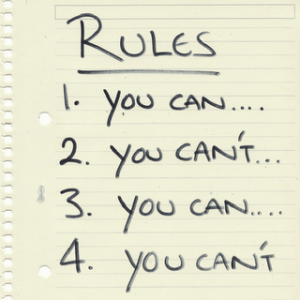Trade shows offer a unique opportunity for face-to-face communication with potential buyers; however, your sales team must have a focused plan to produce a superior return on the investment.
Even though there is so much publicity about the wave of selling in the future being so dependent on social selling, inbound marketing and such, tradeshows offer a way to get in front of potential buyers and interact with them on a more personal level. Statistics provided by Trade Show News Network reveal that 81 percent of tradeshow attendees have buying authority. And 92 percent of tradeshow attendees indicate they are looking for new products. This is great news.
However, exhibiting at trade shows can be a big expense. You must have a focused plan to produce an adequate or superior return on the investment. And it is important to note that the investment is not just dollars. There is an investment of time — significant time — away from the office for all who participate. There is a physical investment. Working trade shows is hard on the body. It can be physically demanding and tiring. If your team is continuously, mindlessly attending trade shows without adequate reward in the form of new business they will wear down, which can negatively impact future sales effectiveness.
Especially if you are concentrated in an industry that is saturated with trade shows and conferences it is easy to lose more enthusiasm when attending several in the span of a year. If you have employees who have been in the industry for a while you might even have some complacency. They might view it as a time to catch up with old acquaintances and see existing clients, but may not have the fire to thoughtfully plan how they will attack the show to be as efficient as possible to generate new business.
It seems that in most industries there are a wide variety of trade shows to attend. Without your guidance, focus and enthusiasm, you may be throwing money down the drain.
Planning & Preparation Are Critical
First and foremost, you must have a trade show calendar and plan. Which shows are you attending and why? For some companies, it is a matter of brand awareness that they exhibit at shows. However, you may do yourself more harm than good if you simply exhibit, but don’t staff the booth with salespeople who can appropriately articulate your value proposition. Or you may do harm if your booth projects an image of mediocrity, or an image of being just another equipment manufacturer or service provider.
If your budget does not allow for a professional booth that projects an outstanding image, you may want to reconsider the number of shows in which you actually exhibit. You might want to select fewer shows and do a far more robust job with preparation, promotions and focus. You can still attend the show and make appointments with key clients, prospects and partners to meet at the show. Maybe you can even partner with another company as a referral partner to use their booth as a meeting place with your contacts. But do not put up a sloppy, unprofessional booth. Exhibit companies such as Skyline Exhibits, for instance, can work with most any budget to make your material look polished and professional.
Also important is your pre-show preparation. As mentioned, it is important to have a presence at the show projecting the right image. Well, it is equally important to adequately plan how your people will work the show when they are there. If you have been exhibiting at shows for some time, you probably have a well-oiled marketing machine focused on the pre-show marketing, the “at-show” buzz and the “after show” follow-up — from a marketing perspective. Let’s focus, therefore, on the sales side of things.
Lead Your Sales Team
As the leader of your sales team it is important that you provide the leadership with regard to your team’s trade show execution plan. Two months prior to the event, you should begin holding meetings with your sales team to discuss the goals for the show and to ask each attendee to create their own action plan.
Even if an upcoming show is quickly approaching as you’re reading this blog, plan as much as you can in the time available leading up to the show. Any request for focus and commitment to a plan will pay dividends.
If there has been zero planning time then you might want to just do a huddle each morning of the show or night before, and ask each team member for their goals for each day as it relates to the show. It will be best if you provide the overriding goals for the show and let each individual determine his or her own specific action plan.
Whether you have two months or two hours to help your team focus, each sales team member should complete the quick focus considerations.
Trade Show Lead Qualifying Quick List
Regardless of whether or not you have had the opportunity to be well-planned in advance, conduct a contest each day among your participants as to how many qualified leads they can produce, with the operative word being qualified. At a trade show, it can be easy to spend an inordinate amount of time with unqualified individuals. Help your team fight through the urge to become marketers and just randomly talk about your products and services, and help them stay focused as salespeople. Just use a quick and easy trade show lead-qualifying checklist to determine if a lead is qualified, such as:
- They have a compelling reason and we understand why they want (or better yet need) to do something with a product or service we can provide to help them achieve their goals.

- They have a budget to spend, are willing to spend with us and we can demonstrate an adequate ROI for them. (Depending on your time available to spend with leads, the complexity of your sale, and the authority of the person you are speaking with, you may not be able to ascertain this. That is okay as long as you do No. 3 below on this list.)
- They scheduled a next step with us, complete with an appointment on the calendar.
“I don’t want to take all of your time, because there might be other things you want to see. Would you want to actually schedule a follow-up?”
I want to provide special emphasis on the last bullet point. Just getting an agreement that it is okay for the salesperson to call or email following the show is not good enough. Your salespeople will spend countless hours trying to reach people who were all gung-ho at the show but then fizzle, because they weren’t really qualified leads; they were just being nice. An easy way to get the next step is to say, “I don’t want to take all of your time, because there might be other things you want to see. Would you want to actually schedule a follow-up?” Then pull out your phones and get an appointment on the calendar, right then and there. If the “lead” won’t schedule, then it isn’t a qualified lead.
These quick tips should provide you with some easy steps to maximize the effectiveness of your team and their time spent at the show. Remember that if you provide your team with a little inspiration to focus, and request that they be thoughtful with their actions, you will experience a much better ROI.
Considerations For Salespeople Attending a Trade Show
- Number of days away from normal selling activities
- Number of new leads necessary to make the event beneficial
- Number of existing clients I need to connect with at the show
- Number of known prospects I need to connect with at the show
- Dollars of revenue I plan to generate from attending the show
Download the full template for creating a trade show action plan for your team members here.
Business & Finance Articles on Business 2 Community(51)
Report Post







